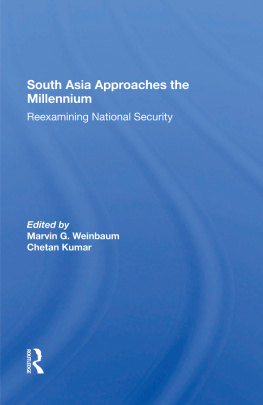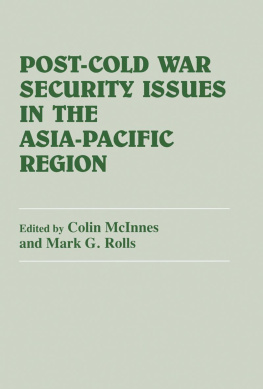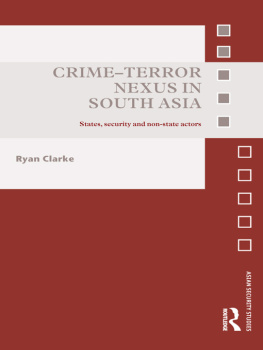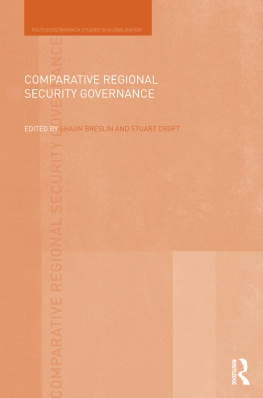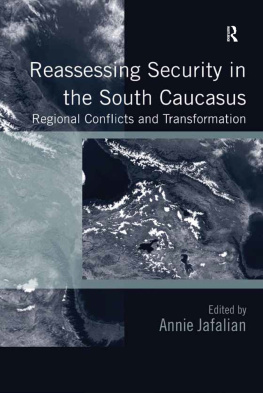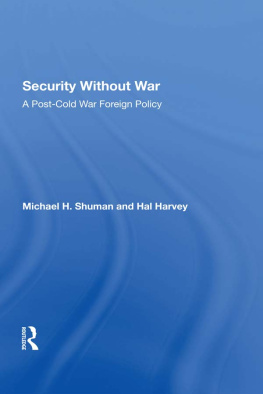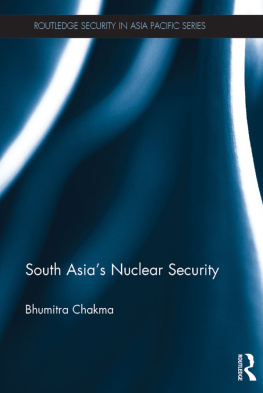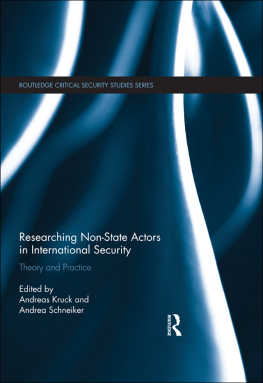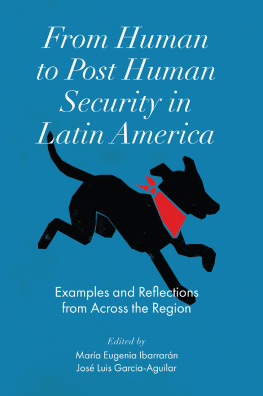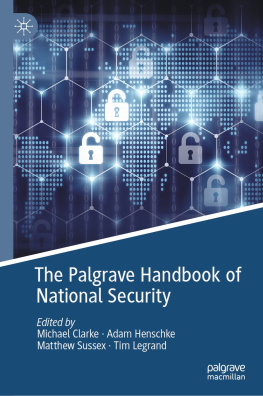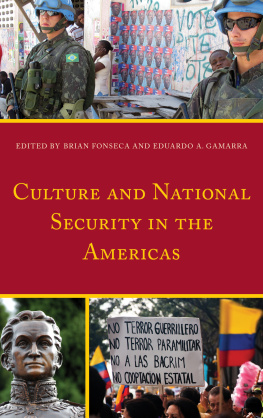First published 1995 by Westview Press
Published 2019 by Routledge
52 Vanderbilt Avenue, New York, NY 10017
2 Park Square, Milton Park, Abingdon, Oxon OX14 4RN
Routledge is an imprint of the Taylor & Francis Group, an informa business
Copyright 1995 by Taylor & Francis
All rights reserved. No part of this book may be reprinted or reproduced or utilised in any form or by any electronic, mechanical, or other means, now known or hereafter invented, including photocopying and recording, or in any information storage or retrieval system, without permission in writing from the publishers.
Notice:
Product or corporate names may be trademarks or registered trademarks, and are used only for identification and explanation without intent to infringe.
A CIP catalog record for this book is available from the Library of Congress.
ISBN 13: 978-0-367-28797-9 (hbk)
This volume has its origins in a project sponsored by the Midwest Consortium for International Security Studies (MCISS). It brought together scholars interested in both the theory and practice of international security, especially as applied to South Asia. The resulting papers and discussions analyzed existing and emerging security concerns in the region, and prescribed policy options. They focused on the evolving understanding of national and regional security in the post-Cold War era and on visible security trends in South Asia as we approach the end of the millennium.
The underlying theme that emerged from the project was that the new kinds of threats currently being faced by the South Asian states call for an expansion of the term security to include not just security from military threats, but also from social, economic, and ecological threats, all of which have emerged as factors affecting the viability of the contemporary nation-state system.
The project participants concurred that the insecurity of nation-states is not a local or self-induced phenomenon, but derives from factors at both the international and subnational levels of the world system. In other words, it is not just states that feel insecure; societies and social groups can experience insecurity too, thereby adding to the overall insecurity of states that preside over them. In this context, it was also suggested that the excessive pursuit of military security by nation-states in the short term can detract from democratic practice as well as the pursuit of socioeconomic development in the long run. This, in turn, by inducing further societal insecurity, can add to the long-term insecurity of the state.
In bringing meaning to the new dimensions of security in South Asia, contributors agreed that a redefinition of security is validated by, among other factors, the increasingly transboundary nature of the problems faced by the South Asian nations. A pointed example of such problems is that of ethnicity: not only do emergent ethnic identities transcend state boundaries, the emergence of a global civil society allows ethnic identities to be communicated transnationally at an everincreasing pace. For instance, as several participants observed, the emergence of an entire bloc of Islamic states to the north of South Asia in the wake of the Soviet collapse can complicate the ethnicity dimension of the security problematique in South Asia, particularly since the threatened fragmentation of Afghanistan has removed a key buffer state.
A problem that was identified by the participants as having transboundary implications and solutions is that of lagging economic growth. The populations of South Asiahaving had their expectations and demands fed by an increasingly intrusive transnational media as well as by rapidly proliferating global agendas for increased human rights and popular participation in government grow restive if the states of the region are slow in their response to these demands. At least some of the explanations for movements for greater provincial self-determination, virulent ethnicities, and mass popular upsurges rest on a failure by the state to provide for improved and universal social and economic welfare. Several project participants found it imperative that South Asian states cooperate in furthering mutual economic growth, lest in its absence there arise more restive populations and spirals of violence that would undermine the survival of governments and the long-term viability of the states in the region.
A third problem with transboundary implications is that of the environment. Conflict over the sharing of river waters, populations that express their anger in violent ways over famines and other consequences of environmental mismanagement, and the transboundary environmental fallouts of misguided development policies are all issues that complicate security in South Asia. Needless to say, these issues can only be resolved regionally, given their very nature.
It was pointed out by some participants that the transboundary nature of emerging security concerns in South Asia could lead to an understanding of security as being more than a zero-sum game. Hitherto, most South Asian states have tended to see an increase in their security as taking place at the expense of one or more of the other South Asian states, and vice versa. However, the existence of common transboundary problems that detract from the security of individual states leads to the awareness that a solution of these problems would not just enhance the security of individual states but of all of the South Asian states as a region.
Some contributors to the project pointed out that, as per functionalist formulations, regional cooperation on a common security agenda might generate structures and processes that could spill over into arenas where longstanding bilateral disputes, such as the one over Kashmir, are being contested. Such spillover effects could mitigate these disputes to the point where they would fade away, even as they remain intractably unsolved at the official level. (The dispute between France and Germany over Alsace-Lorraine was brought up as an example of such functionalist problem-solving processes.)
While concurring on a broadened appreciation of the factors that could be seen as legitimately increasing the insecurity of the state in South Asia, several participants warned against the risks of stretching the definition of the term security to the point where it no longer retains theoretical consistency. They were countered by those who held that, instead of imposing an a priori theoretical definition of the term on an essentially fluid reality, analysts need to carry out an empirical study of the factors that actually cause states to feel insecure, and then to incorporate these factors into a broad-based understanding of security. In other words, security should be behaviorally defined as "the capacity to cope with insecurity." Empirically speaking, security should be measured not in terms of an aggregation of resources or military might, but in terms of the states' ability to mitigate those factors that increase their insecurity. In order to be effective, such mitigation would require that states bring appropriate resources to bear in specific issue-areas. Not all problems can be solved through bilateral bluster: possession of nuclear weapons, for instance, does not translate into effectiveness in multilateral trade negotiations, even though the latter attribute might be more necessary than the former for states' long-term viability.

